
Dundalk Colleges last won the Leinster 'A' title in 2011, when they defeated St. Patrick's of Navan at Páirc Tailteann. (Pic: Arthur Kinahan)
It must be nine years since a De La Salle U14 team containing your writer headed for Corduff to play a challenge match with Carrickmacross’ Patrician High School.
We were set to appear in a North Leinster Schools ‘C’ final a week or so later, while Patrician had their eyes set on a ‘B’ prize within Ulster. They won well.
The schools’ enrollment figures would have been about par, at in or around the mid-hundreds mark, and the game really ought to have been a measure of where our Blayney Road crew stood compared to those from over the Monaghan border. We also faced St. Paul’s, Bessbrook, around the time too, another Ulster ‘B’ outfit with notions of climbing to a higher perch.
In the period since, both Patrician and St. Paul’s have been yearly competitors at the elite standard provincially - the latter even reaching a MacRory Cup decider, which is the pinnacle of Ulster colleges’ football. Our team in the De La Salle won a Lennon Cup and qualified for a North Leinster ‘C’ final at U18. Do you see the gap?
Of course, De La Salle played a key role in one’s development and it remains a source of pride, but the small-minded mentality across the board within domestic schools is a chief reason behind the gradual decline of Louth GAA.
Take Ardee Community School as an example. St. Mary’s have been producing players of a very high quality in recent years, which helped Ardee to win an All-Ireland ‘C’ crown and numerous county championships. But, instead of these victories being the end of competing at the third-tier, they remain in the grade.
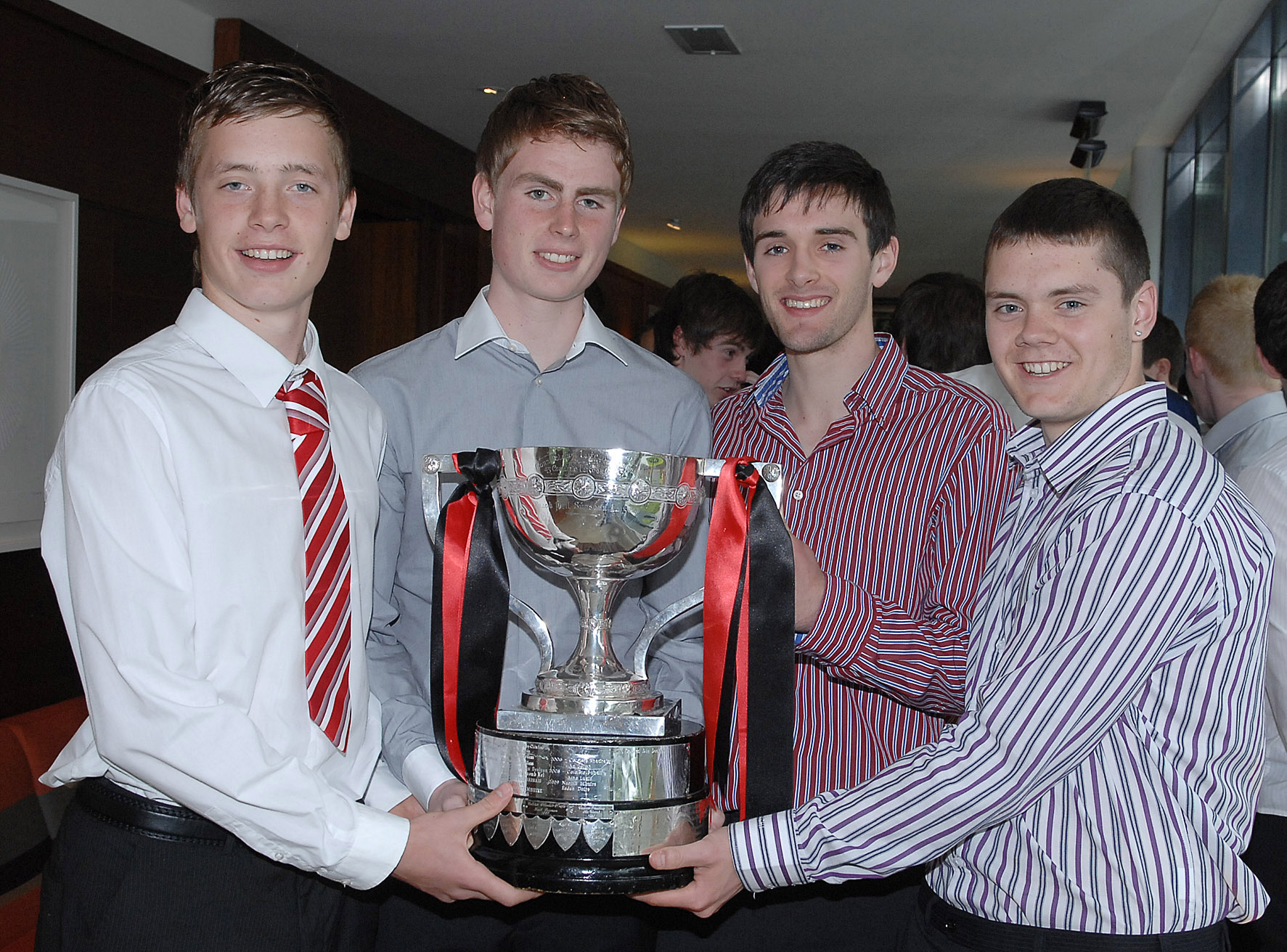
Development isn’t about trophies, really, it’s about what it says on the tin… development. You can only do that by testing yourself and improving.
Indeed, of the 10 established secondary schools in the county, all play senior football at a North Leinster ‘C’ level, or below, bar St. Joseph’s CBS in Drogheda, who reached this year’s ‘B’ quarter-final. It’s 35 years since Colaiste Rís won the Leinster ‘A’ crown with a team that would progress to backbone the county seniors for a decade and more.
There have been attempts at securing a higher level of football for the few, in the form of Dundalk Schools and Louth Schools entering the province’s top-bracket, but this is a fairly watery, if plausible, attempt at competing. The standard isn’t being brought up and over a period of time, that’s been proven.
THE KEY
“The key to success for club and county is your schools,” says Martin Corey, a former Monaghan GAA coach who worked closely with St. Macartan’s College.
“There’s no other way. I don’t think people understand the importance of schools and the fact that they’re in a setting where you get 100 percent contact with players. The secondary schools are the absolute key, in my opinion.”
So what has to change? The mindset, first and foremost.

Patrician, under the watch of Dundalk RFC’s Owen McNally and Paddy Martin, who has coached Roche Emmets and Ardee St. Mary’s, reached the last 16 of this year’s MacRory Cup with a head population of less than 500. But their commitment was ferocious. It had to be.
“It would have been four to five times per week; that level of commitment,” Martin explains. “It would have been seven o’clock on a Monday morning, pitch sessions on a Tuesday and Friday, and then meeting up at the weekend. Owen ran an equivalent to what St. Colman’s in Newry would run.”
Cathal Murray, a selector with the Louth senior team, is St. Colmans’ MacRory Cup supremo.
“It’s a minimum of at least two sessions per week with every team,” he adds, when asked about their five representative sides’ weekly schedule.
“We’re up to four with the MacRory or Ranafast teams. The MacRory team would be doing weekends too.
“We have an ethos and tradition in that the lads who come to us, while they’re coming for an education, it’s a two-fold thing; they’re coming to play football as well, generally.
“That makes it easier for us because they know and they see when the senior team is doing well, in getting to the MacRory Cup final, even though it wasn’t played, the lift that the first years would have got in going to the games and watching that, we will continue to enjoy the fruits of that. Those senior boys are their idols; absolute kings to the wee lads.
“I saw a photo popping up on Twitter there recently of the St. Colman’s team of 1949, the first-ever team to win a MacRory for the school. That gives you an indication of how long this has been going in the school - and how much it means.
“When kids come walking around the place with their fathers on open days, their father could be pointing to themselves on the wall. There’s a massive tradition; lads want to win to get on that wall.”
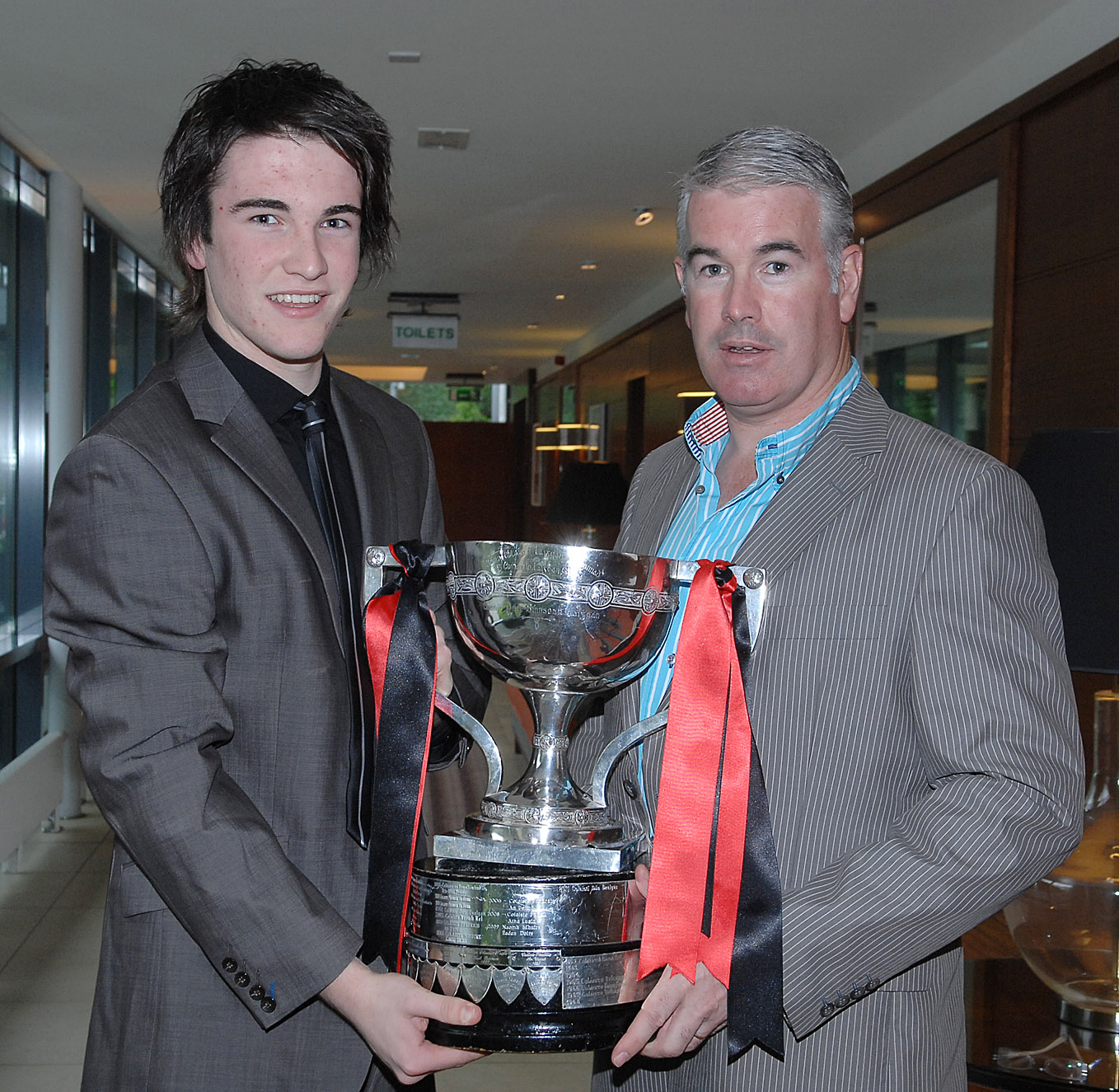
But tradition doesn’t ensure the production line is endemic. St. Mel’s College in Longford are Leinster’s most successful senior competitor by 19 titles, but the last of their 29 came in 2003. They have continued to ply their trade at the top rank, across the board, with limited success.
However, it was striking that at half-time of Louth’s National League defeat by Longford in late January that a St. Mel’s U14 team, who won the Leinster ‘A’ title, were paraded with the trophy. In the last three years, the college has won two ‘A’ and a ‘B’ crown at either U14 or first-year level.
“The U14 has rejuvenated football in the school,” says manager Ciarán Garvey. “Our U16s this last two years have been beaten by a kick of a ball at the Leinster quarter-final by the eventual winners.
“St. Mel’s is on the rise, we’re going in the right direction.”
He speaks of the ‘buy-in’ of players being crucial and how, even at U14, he is in contact with parents to discuss their juveniles’ progress and wellbeing, alluding to particular examples where the dialogue has helped to prevent burnout among individuals.
How have they managed a turnaround in fortunes? Training, preparation and structure, ultimately, as well as the right type of coaching.
“Mickey Quinn’s (Quinn is a prominent Longford footballer) initiative a few years ago involved having a skills’ session at 8am, before school, and then at lunchtime we’d work on game matters. We don’t necessarily have to work on fitness because when they come in they’re playing club championship; they should be fit. It’s to do with fine-tuning their skills.
“A Leinster final could be played in winter so your skillset is most important. You don’t have to worry about summer football yet and the speed of the passes, it’s all about making sure the handling is right. That’s the way we look at it. If we focus on the skills, we won’t have to overtrain them.”
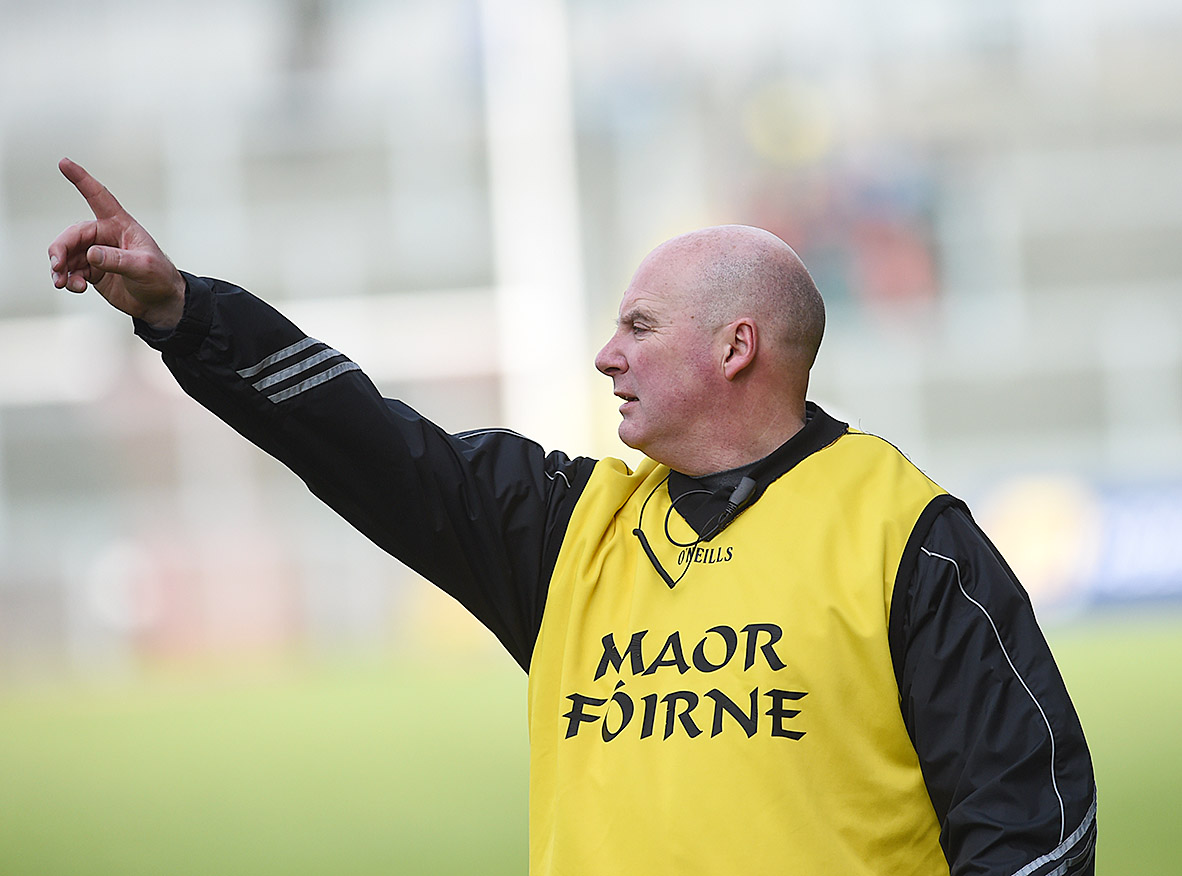
DETERMINATION
No Kildare outfit had ever won the Leinster senior title until Naas CBS managed it from nowhere two years ago. They repeated the trick 12 months later and were only denied the grandest triumph - a Hogan Cup - by a point at Croke Park. They’ve qualified for this campaign’s decider as well.
Ronan Joyce is the man at the helm and he recalls battling to get the school to enter Leinster ‘A’ - and they won it at the first attempt. Their facilities are meagre, but they make it work, with a gym session on a Monday and two further after-school pitch meetings during the week.
You simply have to have the desire to be a part of the elite bracket, he concedes.
“Three times a week isn’t massive when you think of the level of football that it is,” Joyce suggests.
“We don’t have great facilities - half a pitch and two sets of portable goalposts - but we make it work and it’s been about setting structures in place. And we’ve a very supportive principal.
“I mean our transport costs would be phenomenal, but you have to. If you’re to compete at MacRory Cup level in Ulster or in a Leinster, Munster or Connacht ‘A’, you’re going to have huge bills as regards travel.
“But when we won that first Leinster, there was a huge buzz around the school. The next group then wanted it the year after and last year went so well up to the final, it’s been a roll over to this year.”
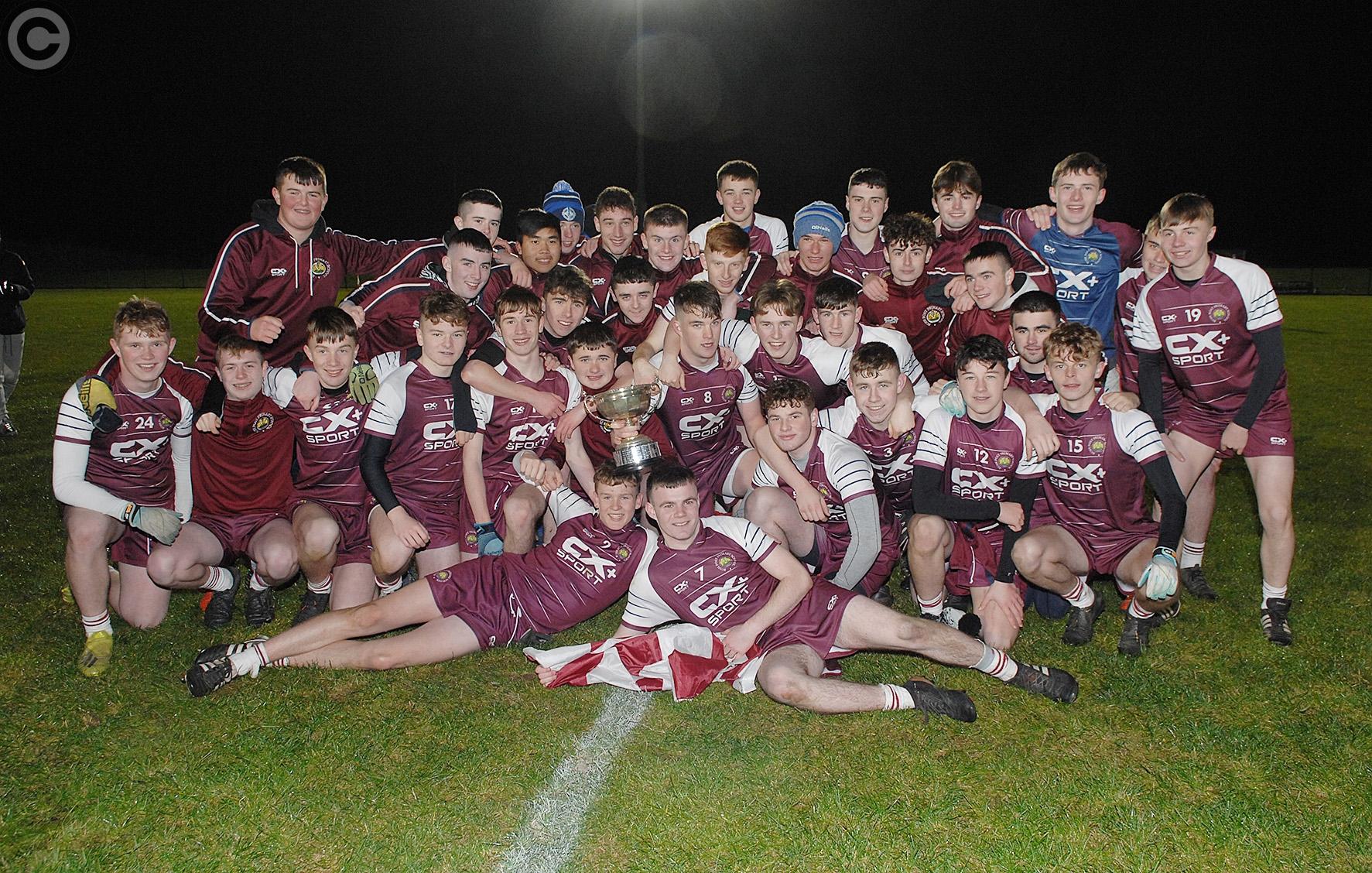
Naas are due to face first-time finalists Rochfordbridge, if Covid-19 allows, the latter becoming the fourth different Westmeath outfit to appear at the last round stage in the past seven years.
“To have five schools in the ‘A’ is probably unique for a small county,” according to Westmeath County Manager Noel Dempsey.
It’s now become something cultural, he claims, to contest the top grade and is proud of the role the county’s Coaching & Games body have played, but, equally, he’s humble enough to acknowledge that teachers within the respective colleges are the ultimate drivers.
“Westmeath have driven people in those schools and Coaching & Games would support the schools in whatever way they could, whether it be providing competitions at a certain level; first year or transition year.
“Coaching & Games would have worked with teachers with sessions and that along the way, but teachers have ultimately been the drivers.”
That’s a point of mutual agreement.
Martin, Patrician: “I think it’s more beneficial if the teacher within the school is training the team, although I know that’s not always possible.
“But I know boys will respond when the show is being run well. They buy into it. I think it’s as simple as this: If the boys know that you are serious about what you’re doing and you get a small bit of success, all of a sudden some of the boys who would go to Inver will come to the High School. The MacRory element, all the boys want to play in the MacRory.”
Murray, St. Colman’s: “I would generally spend the summer going to look at U16 and minor footballers, playing for their clubs. We could have 60 lads coming out for trials, but they’re false. I’d prefer to see a lad playing for his club and players have been picked on the basis of what they’ve done for their clubs rather than trials.
“In terms of the investment and time spent going to look at players, it benefits us come September because I’ve then a fair idea of what I’m working with.”
Garvey, St. Mel’s: “If the coaches have an interest the kids will have an interest and if they want to get them out they will get them out.”
COUNTY COMMITMENT
Seamus McEnaney, Corey reckons, helped to change the philosophy and outlook of Monaghan Gaels, part-injecting pride and spirit back into the county. Their coordinated approach, he feels, has stemmed from their unification in the pursuit of a common goal. Fruit has been produced, with a myriad of Ulster titles at senior and juvenile level.
But Corey has an alternative viewpoint from those mentioned above. He sees the overall benefit of having a full-time coach as a member of staff in your schools.
“The link that that coach has, he knows that the county doesn’t need to bring these boys to development squads all the time because they’re getting all that they need in the school.
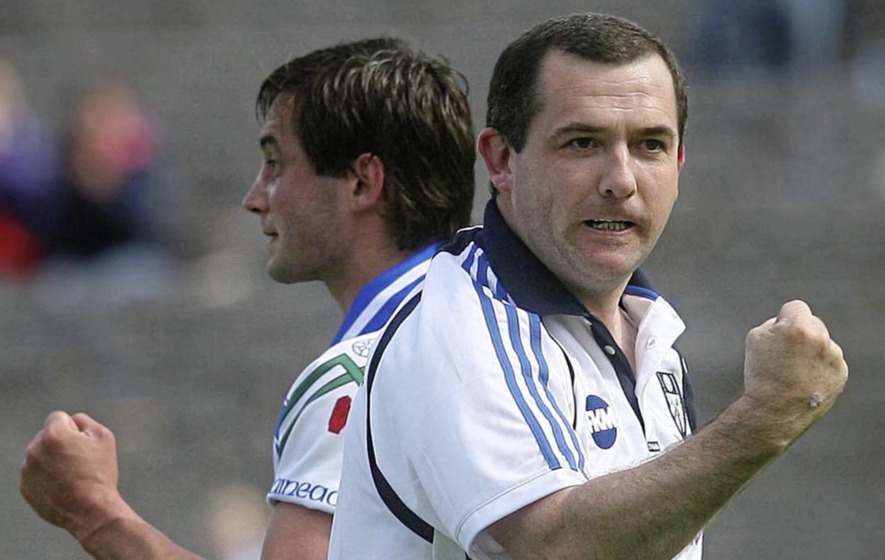
“We need our development squads and secondary schools all singing off the same hymn sheet. There’s no point in there being a fighting match to get players.
“My belief is that secondary schools should be hubs for a county and so it’s sensible to then be putting resources in.
“It’s all about getting consistently good coaching throughout the year. Is it 12 months of the year? I’d say it’s a good 10 months anyway and a bit more over Christmas. Development should never stop.
“The school also has to want and embrace it, but, for me, it’s a no-brainer because it’s a serious PR thing and beneficial for induction levels.”
Equally, in Longford, the benefits of playing high-level schools football has registered and through a specially formed committee, there is a synchronised approach.
“I’ve found that there’s an awful lot of people who think that you need to be playing county underage and on training squads, when, if you look at the bigger picture, if you’re playing Leinster schools’ football, it’s as good as it’s going to get for some players,” says Garvey.
“I’m not downplaying any county underage set-ups, but players should be utilised in the right way and not forced into things they don’t want. They should only have one goal at any one time, rather than three or four. You’re robbing Peter to play Paul otherwise.”
Kildare, meanwhile, reached the 2018 and ’19 Leinster U20 finals, winning the All-Ireland the first year, at the same time as Naas have been pulling up trees. There has clearly been dialogue, crossover and respect.
“I couldn’t have faulted the Kildare U20 manager of the last two years. He’s been very open-minded and has seen schools’ competition for the standard of football that it is,” Joyce added.
CONCLUSION
So what’s needed in Louth? Well, schools have to take a stance and lay out a plan. Like in Naas and Mel’s, aspiration to be the best is key.
The County Board needs to offer support and aid the implementation of structures, as was the case in Monaghan.
Teachers ought to steer the process, or else Louth GAA must get their own people integrally involved. Either or, or both, has unfolded in Monaghan, Kildare, Longford and Westmeath.
It’s been established that players will respond if organisation is applied. As Martin says: “We would have played the Dundalk schools over the years and there has to be as much talent there.”
If it was done once, by Colaiste Rís, it can be done again. Louth schools need to climb the provincial ranks. The county will flourish as a consequence.
The question is, who will start the process?
Subscribe or register today to discover more from DonegalLive.ie
Buy the e-paper of the Donegal Democrat, Donegal People's Press, Donegal Post and Inish Times here for instant access to Donegal's premier news titles.
Keep up with the latest news from Donegal with our daily newsletter featuring the most important stories of the day delivered to your inbox every evening at 5pm.